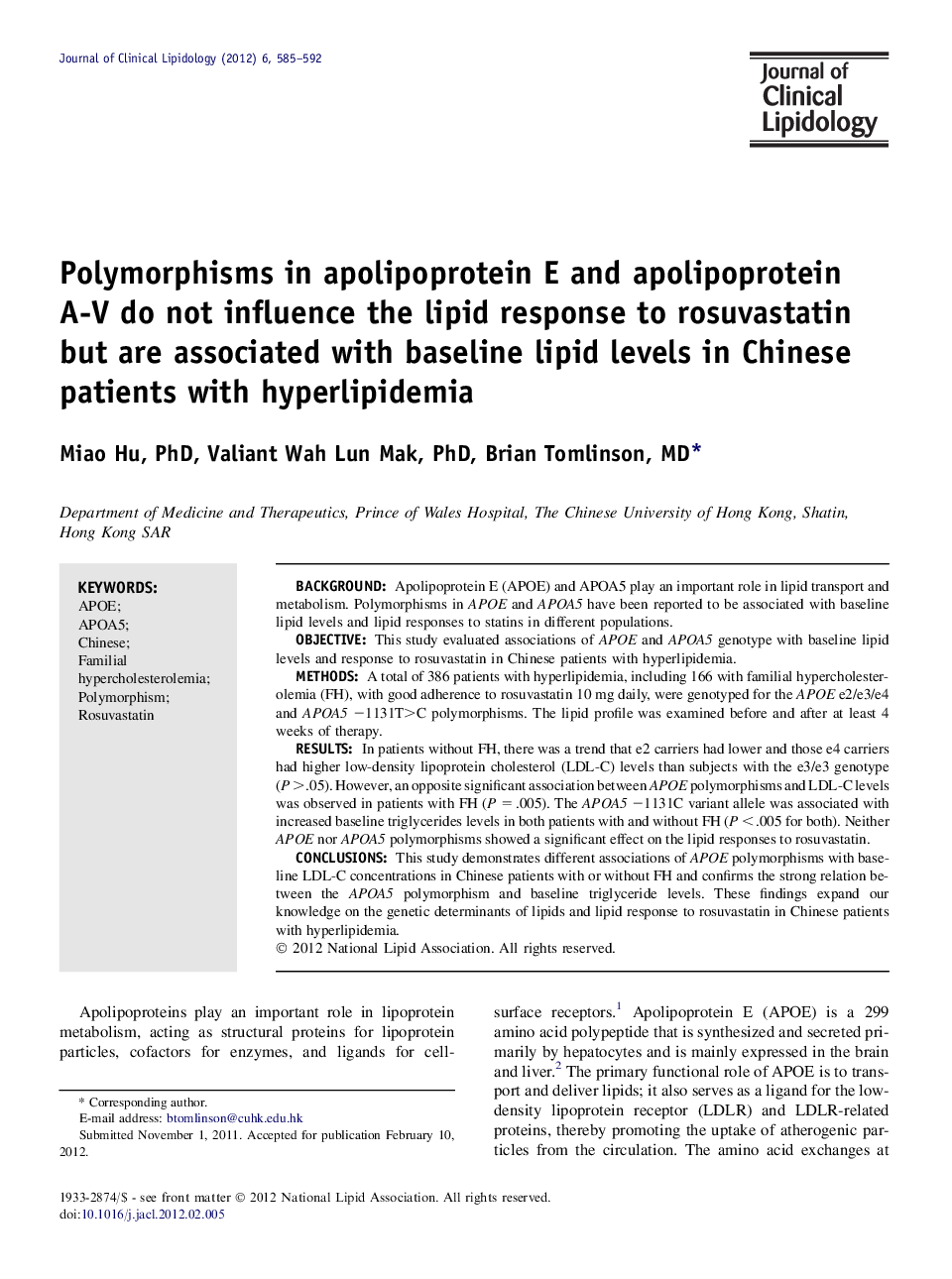| Article ID | Journal | Published Year | Pages | File Type |
|---|---|---|---|---|
| 2966248 | Journal of Clinical Lipidology | 2012 | 8 Pages |
BackgroundApolipoprotein E (APOE) and APOA5 play an important role in lipid transport and metabolism. Polymorphisms in APOE and APOA5 have been reported to be associated with baseline lipid levels and lipid responses to statins in different populations.ObjectiveThis study evaluated associations of APOE and APOA5 genotype with baseline lipid levels and response to rosuvastatin in Chinese patients with hyperlipidemia.MethodsA total of 386 patients with hyperlipidemia, including 166 with familial hypercholesterolemia (FH), with good adherence to rosuvastatin 10 mg daily, were genotyped for the APOE e2/e3/e4 and APOA5 −1131T>C polymorphisms. The lipid profile was examined before and after at least 4 weeks of therapy.ResultsIn patients without FH, there was a trend that e2 carriers had lower and those e4 carriers had higher low-density lipoprotein cholesterol (LDL-C) levels than subjects with the e3/e3 genotype (P > .05). However, an opposite significant association between APOE polymorphisms and LDL-C levels was observed in patients with FH (P = .005). The APOA5 −1131C variant allele was associated with increased baseline triglycerides levels in both patients with and without FH (P < .005 for both). Neither APOE nor APOA5 polymorphisms showed a significant effect on the lipid responses to rosuvastatin.ConclusionsThis study demonstrates different associations of APOE polymorphisms with baseline LDL-C concentrations in Chinese patients with or without FH and confirms the strong relation between the APOA5 polymorphism and baseline triglyceride levels. These findings expand our knowledge on the genetic determinants of lipids and lipid response to rosuvastatin in Chinese patients with hyperlipidemia.
